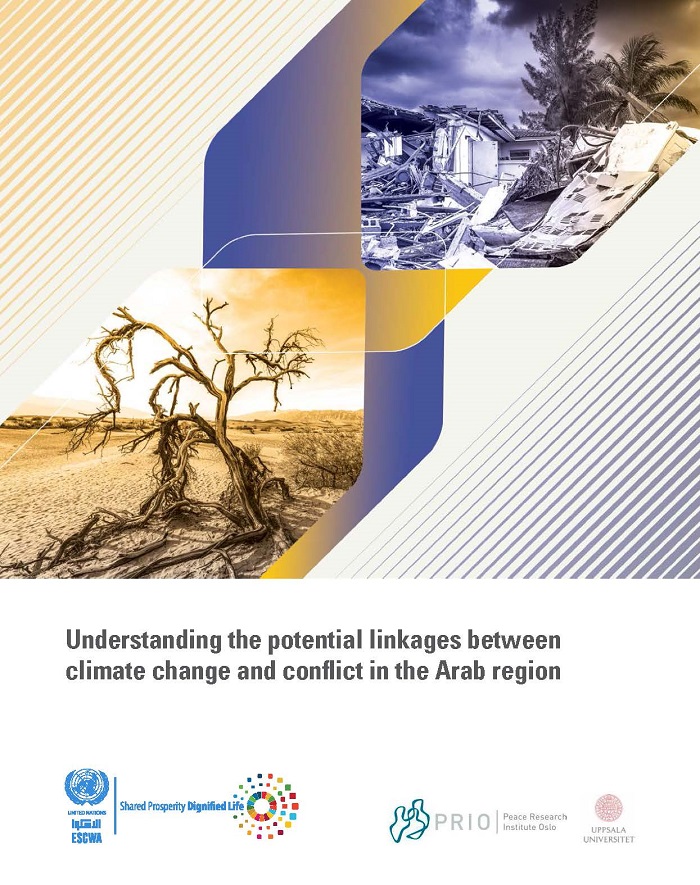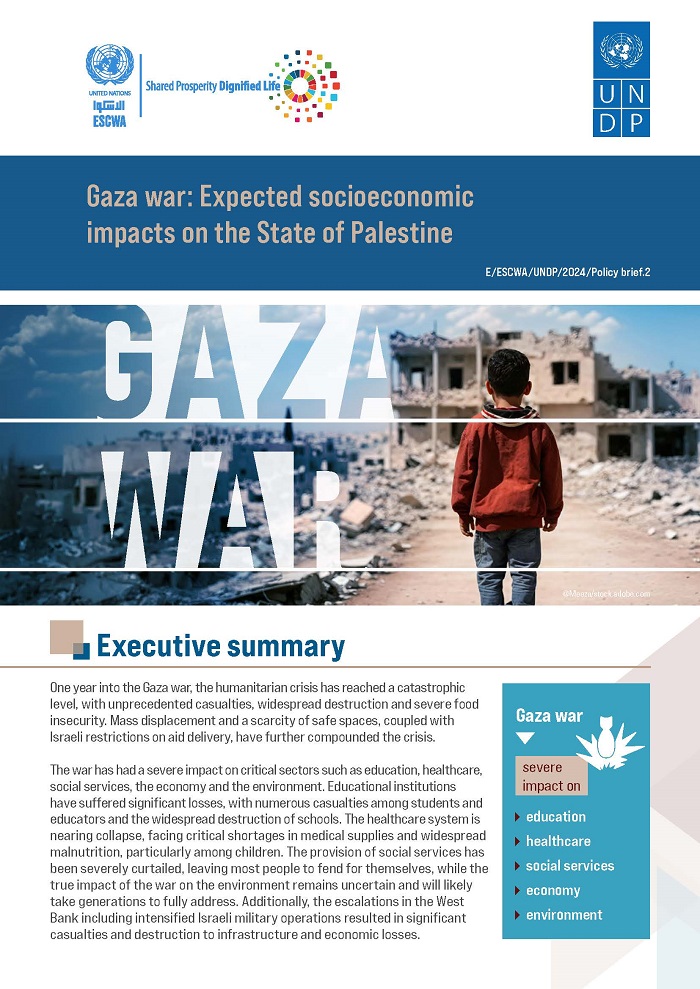
ESCWA Publication: E/ESCWA/CL6.GCP/2021/TP.9
Country: Arab Republic of Egypt, Hashemite Kingdom of Jordan, Federal Republic of Somalia, Islamic Republic of Mauritania, Kingdom of Bahrain, Kingdom of Morocco, Kingdom of Saudi Arabia, Lebanese Republic, People’s Democratic Republic of Algeria, Republic of Iraq, State of Qatar, Republic of Sudan, Syrian Arab Republic, Republic of Tunisia, State of Kuwait, State of Palestine, Republic of Yemen, United Arab Emirates, State of Libya, Sultanate of Oman
Publication Type: Working papers
Cluster: Governance and Conflict Prevention
Focus Area: Resilient development & conflict prevention, Governance & enabling environment, Population dynamics & migration, Climate change
Initiatives: Advancing water and food security
SDGs: Goal 13: Climate Action
Keywords: Climate change, Conflict, Arab countries
Understanding the potential linkages between climate change and conflict in the Arab region
February 2022
The Arab States are affected by a wide range of environmental challenges exacerbated by current and projected impacts of climate change, including, among others, depletion of scarce natural resources such as water and arable land, increasing pollution levels, and the growing number and magnitude of extreme weather events. At the same time, the Arab region has been a hotspot for conflicts during the last decades. This highlights the need among policymakers and practitioners of conflict prevention and peacebuilding to better understand how climate change might contribute to current or future dynamics of conflict.
This report provides a conceptual framework for analysts and policymakers in the region that shows how the loss of livelihood, economic contraction, resource competition, migration, poor governance, and other social processes (mechanisms) spurred by climate risk are more likely to increase conflict risk when occurring in certain contexts.
Related content
Resilient development & conflict prevention
, Governance & enabling environment
, Population dynamics & migration
, Climate change
,
The Arab States are affected by a wide range of environmental challenges exacerbated by current and projected impacts of climate change, including, among others, depletion of scarce natural resources such as water and arable land, increasing pollution levels, and the growing number and magnitude of extreme weather events. At the same time, the Arab region has been a hotspot for conflicts during the last decades. This highlights the need among policymakers and practitioners of conflict prevention and peacebuilding to better understand how climate change might contribute to current or future dynamics of conflict.
This report provides a conceptual framework for analysts and policymakers in the region that shows how the loss of livelihood, economic contraction, resource competition, migration, poor governance, and other social processes (mechanisms) spurred by climate risk are more likely to increase conflict risk when occurring in certain contexts.



